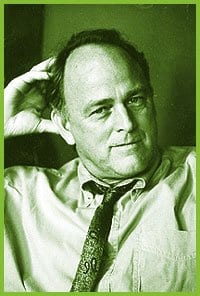Recently I received two e-mails that had been forwarded to me. Inundated by an endless flow of electronic traffic, my usual response is to delete them. But these two made me pause and think. The first e-mail was an article from the English paper, The Guardian. The second one contained disturbing news from Africa. Both made me realize that the problems facing our community in Canada are serious, but they pale in comparison to those communities must confront elsewhere.
The English article was headlined: “Minister fights Lords attempt to wreck measure which continues ‘long journey’ from decriminalization of homosexuality.” It reported how the UK government was seeking ways to save its civil partnership bill. The House Of Lords, through a cross-party coalition of peers and bishops, had sought to neuter the bill by extending its provisions to include long-term caregivers and family members living together. The government’s original bill would allow same-sex couples to register as civil partners, thereby acquiring legal rights and responsibilities in areas such as immigration, children and state benefits.
Equality Minister Jacqui Smith stressed to the British Parliament that the intent of the bill was to permit “equality for the thousands of couples whose relationships are currently invisible in the eyes of the law, send out a clear message about the importance of stable and committed same-sex relationships, and mark a major step in helping such couples gain greater social acceptance of their partnership.” She noted eight European Union states and several other countries had adopted civil partnership since Denmark first did it in 1989.
At the same time, Smith sought to reassure family-minded Tory MPs that the bill did not approve gay marriage. Unconvinced, a group of rightwing Conservative MPs distanced themselves from their party’s support for the bill.
The other e-mail I received told of the rape and murder of activist Fannyann Eddy in Sierra Leone. Eddy had been safely living in the Netherlands with her son and her partner. Having followed the work of the activist group Gays And Lesbians Of Zimbabwe, a southern African country whose president is well known for his homophobia, she wanted to return to her own country to begin a local gay rights organization there.
A firebrand, Eddy threw personal concerns to the wind. She was determined to advance the situation of gays and lesbians in her home country and began the Sierra Leone Lesbian And Gay Association. In early October, murderers broke into their offices in Freetown while she was alone.
2004 had been an active year for her. Her work took her to Johannesburg last February to participate in the All African Symposium On Human Rights And HIV/AIDS. Then, in Geneva in April, she spoke eloquently at the meeting of the United Nations Commission On Human Rights (UNCHR), outlining the situation in her country and pushing for approval of the Resolution On Human Rights And Sexual Orientation.
In her speech, she outlined the dangers that vulnerable groups and individuals face throughout Africa, where most African leaders refuse to acknowledge the existence of gays and lesbians. The queer community, she pointed out, live in constant fear of the police and officials with power who can arrest and detain individuals simply due to their sexual orientation. These people fear their families will disown them, forcing them to become homeless and into sex trade work to survive. Harassment and violence from neighbors and thugs lead to attacks that go unpunished.
As she said in her presentation to UNCHR: “When African leaders use culture, tradition, religion and societal norms to deny our existence, they send a message that tolerates discrimination, violence and overall indignity. As evidenced by the liberation struggle in South Africa, where the constitution bars discrimination based on sexual orientation, respect for human rights can transform society. It can lead people to understand that in the end, we are all human and all entitled to respect and dignity.”
Whether the political and religious leaders are in Sierra Leone, the UK or Canada, they should take Fannyann Eddy’s words to heart and think about the consequences of their actions. As she concluded in her remarks to the commission: “Silence creates vulnerability. You, members of the commission on human rights, can break the silence. You can acknowledge that we exist, throughout Africa and on every continent, and that human rights violations based on sexual orientation or gender identity are committed every day. You can help us combat those violations and achieve our full rights and freedoms, in every society, including my beloved Sierra Leone.”

 Why you can trust Xtra
Why you can trust Xtra


